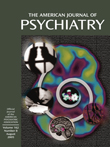Smokeless Tobacco for a Nicotine-Dependent Schizoaffective Patient
Ms. A, a 52-year-old woman with schizoaffective disorder, bipolar type, started smoking shortly after her first psychotic episode at age 19 and, on average, smoked about 1 packs per day for 33 years. She had attempted to quit using pharmacotherapy, nicotine gum, or patches in combination with cessation classes. Both gum and patch treatments were ineffective since they did not control her craving for cigarettes. Her motivation to quit was strong because of the sequelae of smoking: bronchitis, isolation from others, and destabilization of her psychiatric illness from frequently awakening to smoke. Her brother with a bipolar disorder had experienced severe burns over most of his body and died secondary to a fire caused by his smoking. For her, smoking had become a constant reminder of his suffering, which led to nightmares and further isolation. She was afraid to jeopardize the health and safety of others.One year ago, she was cross-titrated over a 1-week period to oral pouches. Since that time, she has not resumed smoking, and her psychiatric and medical symptoms have stabilized. Before her cessation of smoking, she lived an isolated existence. Now she resides with and cares for her parents. For Ms. A, ceasing to smoke was a life-changing event.
References
Information & Authors
Information
Published In
History
Authors
Metrics & Citations
Metrics
Citations
Export Citations
If you have the appropriate software installed, you can download article citation data to the citation manager of your choice. Simply select your manager software from the list below and click Download.
For more information or tips please see 'Downloading to a citation manager' in the Help menu.
There are no citations for this item
View Options
View options
PDF/ePub
View PDF/ePubGet Access
Login options
Already a subscriber? Access your subscription through your login credentials or your institution for full access to this article.
Personal login Institutional Login Open Athens loginNot a subscriber?
PsychiatryOnline subscription options offer access to the DSM-5-TR® library, books, journals, CME, and patient resources. This all-in-one virtual library provides psychiatrists and mental health professionals with key resources for diagnosis, treatment, research, and professional development.
Need more help? PsychiatryOnline Customer Service may be reached by emailing [email protected] or by calling 800-368-5777 (in the U.S.) or 703-907-7322 (outside the U.S.).

